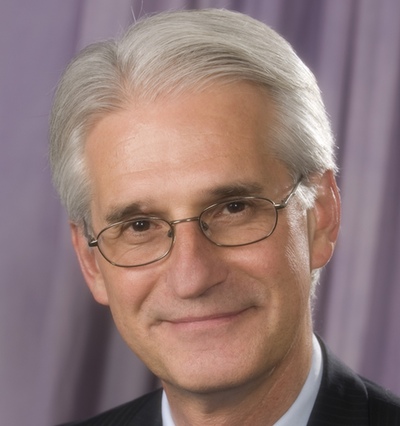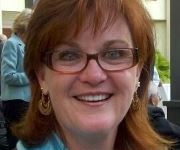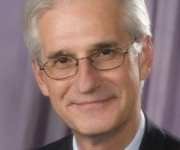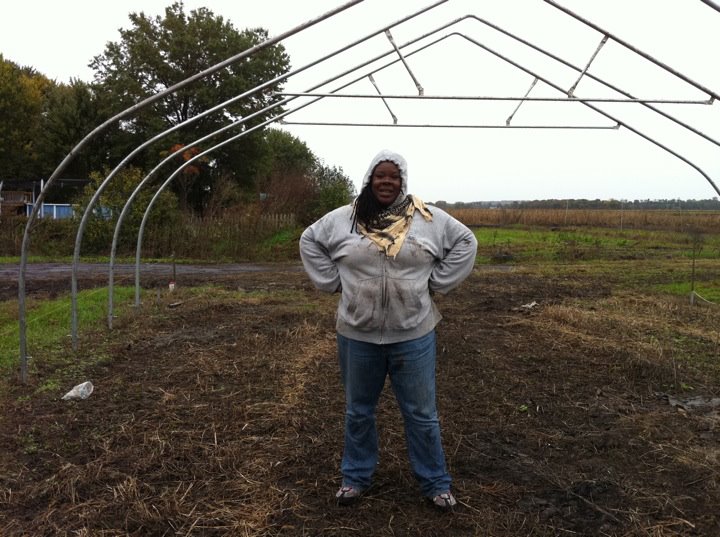Grist is proud to present the Change Gang — profiles of people who are leading change on the ground toward a more sustainable society and a greener planet. Some we’ve written about before; some are new to our pages. Some you’ll have heard of; most you probably won’t. Know someone we should add to the Change Gang? Tell us why.
 Conventional wisdom holds that the forward-looking coastal enclaves of the United States are where we’re supposed to expect cutting edge experiments in building a green economy. But if Ted Howard has his way, every activist who wants to promote green jobs and economic growth should turn instead to the city of Cleveland, Ohio, for inspiration.
Conventional wisdom holds that the forward-looking coastal enclaves of the United States are where we’re supposed to expect cutting edge experiments in building a green economy. But if Ted Howard has his way, every activist who wants to promote green jobs and economic growth should turn instead to the city of Cleveland, Ohio, for inspiration.
Howard is one of the chief architects of the “Cleveland Model” — an effort to create good jobs in depressed urban neighborhoods by fostering for-profit cooperatives founded on a principle of environmental sustainability. The neighborhoods targeted by Howard’s Evergreen Cooperative Initiative suffer from 40 percent unemployment, but he suggests tossing out any preconceptions one might have about whether or not desperately poor people care about the environment. Howard recounts one cooperative worker telling him, “I thought I’d have to move to Portland to become part of the green revolution, and now I can say that we lead the way in Cleveland.”
So far, the Evergreen Cooperatives has two small businesses up and running — a green laundry operation and an already profitable solar panel installation/home weatherization outfit. Currently under construction: a greenhouse intended to provide millions of heads of lettuce and other greenleaf vegetables to local grocers and institutions.
The new companies do not quite follow the rules of capitalism as we know them, says the 61-year-old Howard, who traces his dedication to progressive social change to his days “matriculating in anti-war organizing” at Georgetown University in the late ’60s. The cooperatives are worker-owned, and must commit to contributing 10 percent of their annual profits in perpetuity back into a general fund intended to finance further expansion of the network. The goal, eventually, is to create something as vibrant as the famed Mondragon Corporation in the Basque region of Spain. With 256 interlinked businesses, over 80,000 workers and annual revenues of over $20 billion in 2010, the Mondragon Corporation has proven that worker-owned cooperatives can flourish.
After a career that has included stops in India and Africa and work on hunger and development issues, Howard decided to come back to United States “and really dedicate myself to social change.” In 2000 he founded The Democracy Collaborative, a research center at the University of Maryland that focuses on finding ways to “enhance democracy at the community level.” The Evergreen Cooperative Initiative grew out of that work — an effort to “chart a new course for urban economic development.”
“The way to think about Evergreen,” says Howard, “is not as a job creation or a cooperative strategy, but as really an exercise in community building and strengthening democratic life at the ground level where people live. It’s also an attempt to stabilize a community that has been radically disinvested over the last 20 or 30 years by globalization and capital mobility and jobs offshoring and so forth.”
Howard is speaking to Grist by cellphone from Manhattan, where he had just visited the Occupy Wall Street protest in Zuccotti Park. He isn’t slow to draw connections between the dissatisfaction expressed by the demonstrators and the on-the-ground transformative goals of the Evergreen idea.
“I think people in America are starting to think about whether or not the current system is working in the way that we want it to. And if not, how do we start to envision the elements of a new system? Evergreen is part of that conversation. It’s not the answer, it’s not ‘let’s all do co-ops,’ but it is one of many building blocks of new ways to organize our life in this country and our economics. Why not broaden ownership over capital? Why not give people an opportunity to have a real say and real democratic participation in the workplace? Can that be done effectively? These are questions that are starting to be discussed right now. I think that it’s a very exciting time in our country.”



